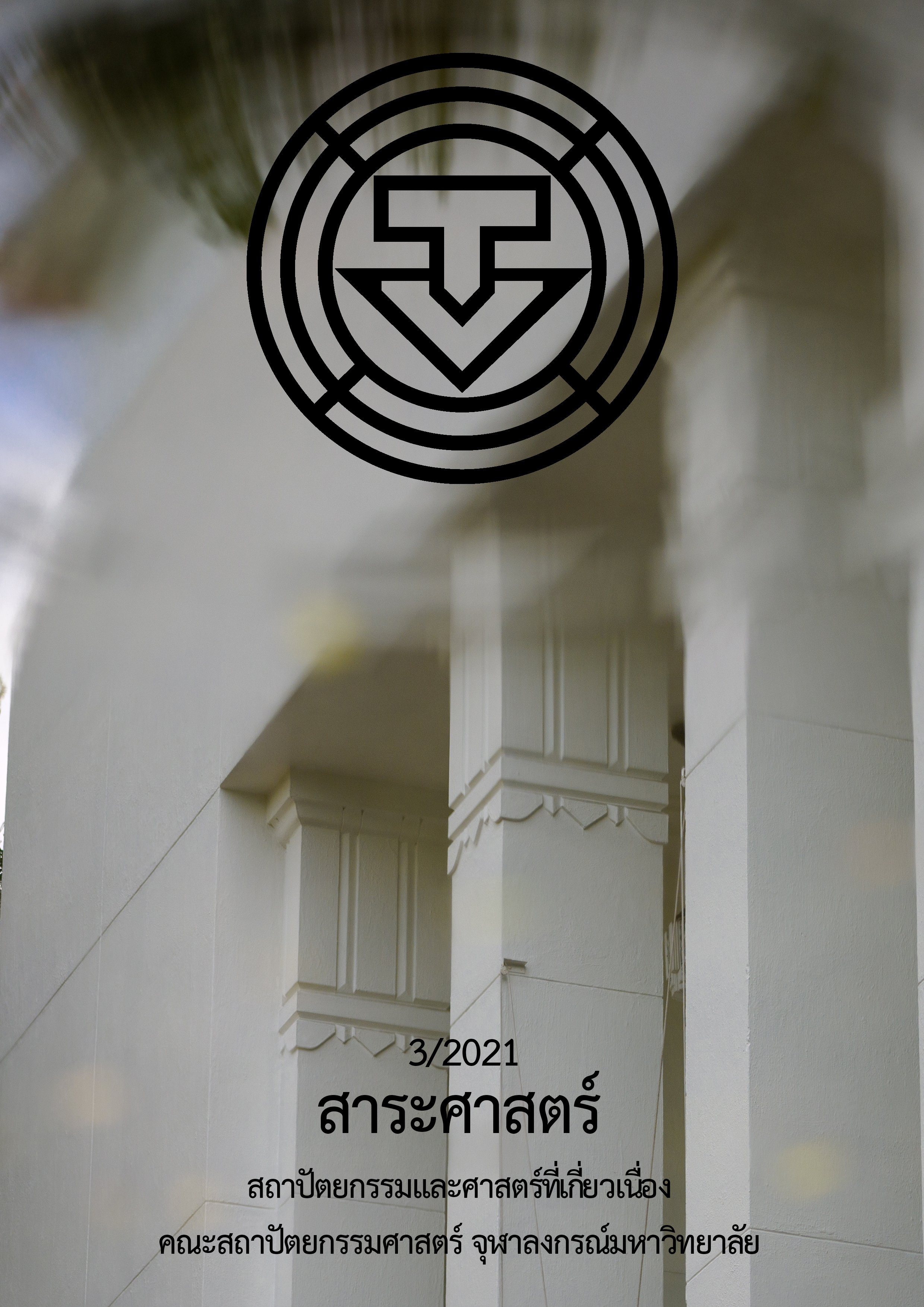Adaptation Strategies of Hotel Business Entreprenuers in Chiang Mai to COVID-19 Situation in 2020
Main Article Content
Abstract
This research aims to explore the adaptation strategies of COVID-19 pandemic of the hotel entrepreneurs in Chiang Mai. Data was mainly collected 154 hotels categorized into 4 types by Department of Provincial Administration and Online Travel Agency (OTA). Data analysis was conducted through data collecting week-by-week between 1st February to 31st December 2020 and diagramming the relationship of measurements and adaptation indicators.
There are three major findings: first, different location has an effect on the adapting strategies found that all hotel type in Nimmanahaeminda area able to adapt themselves within 4 months. Second, hotel business adaptation also based on hotel target group, by field survey found that hotels in Night Bazaar are hard to survive and some remain open with lower than 3% of occupancy rate. Third, physical appearance of the hotel and location are affected price and the occupancy rate because hotel type 1 or hostel cannot generate full capacity.
The research results contribute to public and private sectors understanding those measures and applying for real estate adaptation and coping with problems with socio-economic change in the present and future for hotel entrepreneur and hotel business.
Article Details
References
Barrows, Clayton W., & Powers, Tom. (2009). Introduction to the hospitality industry (7th ed.). Hoboken, NJ: John Wiley & Sons.
Barrows, Clayton W., Powers, Tom, & Reynolds, Dennis R. (2011). Introduction to the Hospitality Industry (8thed.). Hoboken, NJ: John Wiley & Sons.
Bartik, A. W., Bertrand, M., Cullen, Z. B., Glaeser, E. L., Luca, M., & Stanton, C. T. (2020). How are small businesses adjusting to COVID-19? Early evidence from a survey. Cambridge, MA: National Bureau of Economic Research.
Bredvold, R., & Skålén, P. (2016). Lifestyle entrepreneurs and their identity construction: A study of the tourism industry. Tourism Management, 56, 96-105.
Chen, Ming-Hsiang, Wu, Kun Lun, Hung-Jen Su. (2014, December). A study of the business cycle of the hotel industry in Taiwan. Tourism Economics, 20(6). Retrieved from Https://doi.org/10.5367/te.2013.028
Chung F.L., H. (2009). Structure of marketing decision making and international marketing standardisation strategies. Auckland: Department of Commerce, College of Business, Massey University Auckland Campus.
Duncan, W. Jack, Yeager, Valerie A., Rucks, Andrew C., & Ginter, Peter M. (2011). Surviving organizational disasters. Business Horizons, 54(2), 135-142.
Foster, A. (2005). Adapting to change. Keele, Newcastle: Keele University.
Heilbroner, Robert. (1953). The worldly philosophers: The lives, time and ideas of the great economic thinkers. New York, NY: Touchstone Rockefeller Center.
Heuvel, Van den. (2013, August). Adapting to change:The value of change information and meaning-making Journal of Vocational Behavior, 83(1), 11-21.
Kim, Samuel Seongseop, Chun, Hejin, Lee Heesung. (2006, August). The effects of SARS on the Korean hotel industry and measures to overcome the crisis: A case study of six Korean five-star hotels. Asia Pacific Journal of Tourism Research, 10(4), 369-377.
Kyobe, Michael. (2010). A knowledge management approach to resolving the crisis in the information systems. Journal of Systems and Information Technology, 12(2), 161-173.
Marchant, B., & Mottiar, Z. (2011). Understanding lifestyle entrepreneurs and digging beneath the issue of profits: Profiling surf tourism lifestyle entrepreneurs in Ireland. Tourism Planning & Development, 8(2), 171-183.
Netten, Niels & Someren, Maarten van. (2011). Improving communication in crisis management by evaluating the relevance of messages. Journal of Contingencies and Crisis Management, 19(2), 75-85.
The Office of the National Economic and Social Development Council. (2020). NESDC economic report. Bangkok: Macroeconomic Strategy and Planning Division.
Olsen, Michael D., Sharma, Amit, Echeveste, Inigo, & Tse, Elisa Ching-Yick. (1999). Strategy for hospitality businesses in the developing world. Retrieved from https://digitalcommons.fiu.edu>vol26>iss1
Sawalha, Ihab Hanna, Jraisat, Luai Eid, & Al‐Qudah, Kamal A. M. (2013). Crisis and disaster management in Jordanian hotels: Practices and cultural considerations. Disaster Prevention and Management: An International Journal, 22(3), 210-228.
Wang, Wei-Tsong & Hsiao, Chiao-Pi. (2014, December). The influences of knowledge exchange on organizational c-commerce success and crisis readiness: The case of the crisis of an automobile manufacturing and merchandising group. Decision Support Systems, 68, 1-14.


